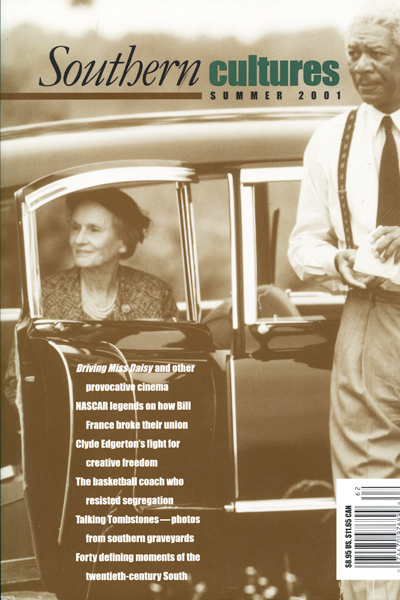“‘Now, Miss Daisy, somebody done bomb that temple back yonder, and you know it.'”
The release of the film Driving Miss Daisy in 1989 made American moviegoers aware of the ongoing presence of southern Jewishness. 1 Alfred Uhry wrote the film’s screenplay from his 1987 autobiographically informed Pulitzer prize-winning play, the story of the relationship between Daisy Werthan, a Jewish Atlanta matron, and Hoke Colebum, her African American chauffeur. Like many Hollywood duos, Hoke, played by Morgan Freeman, and Daisy, played by Jessica Tandy, come together inauspiciously. Seventy-two-year-old Daisy crashes her car, and her son, Boolie (Dan Akroyd), deciding she needs someone to drive her, hires Hoke. At first Daisy will not even enter the car, but eventually Hoke wins her over. As they age, the two forge a strong and complicated bond that challenges some socially proscribed southern mores but leaves others intact. Driving Miss Daisy demonstrates the inseparability of Jewishness and history within a southern context. Daisy simultaneously exists within and without the dominant culture, figured throughout the film as representative because of her status as a white southern matriarch and exceptional because of her Jewishness.


